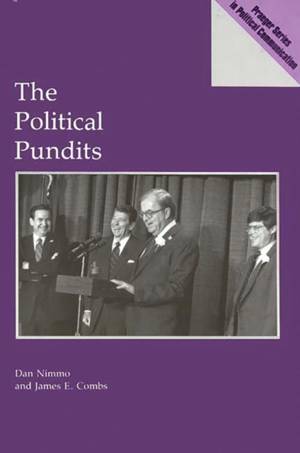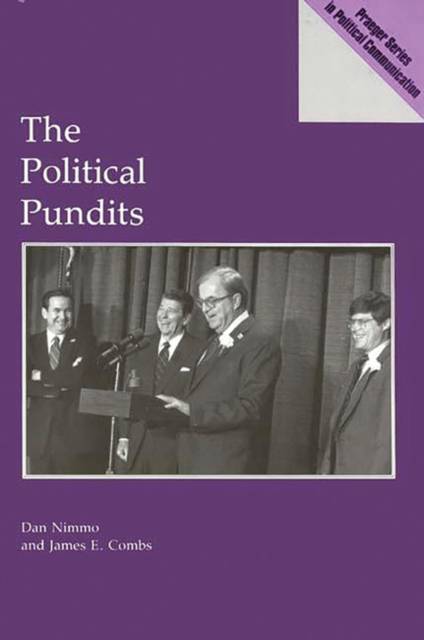
- Afhalen na 1 uur in een winkel met voorraad
- Gratis thuislevering in België vanaf € 30
- Ruim aanbod met 7 miljoen producten
- Afhalen na 1 uur in een winkel met voorraad
- Gratis thuislevering in België vanaf € 30
- Ruim aanbod met 7 miljoen producten
Omschrijving
The Political Pundits surveys in detail the small, elite group of persons who comment on and analyze politics in newspapers and newsmagazines, on radio and television, through lectures, books, and all other forms of political media. Dan Nimmo and James E. Combs discuss the key political role pundits play, their methods and strategies, and the potential danger they present to American political life. Our democracy is being transformed into a punditocracy, which replaces serious citizen debate with discussion guided by show business values. Punditry, Nimmo and Combs argue, produces symbolic rather than effective healing of political ills, political paternalism rather than political reflection, and, in the end, public disenchantment with politics.
The authors conclude that pundits should not be taken too seriously, and approach their outpourings using a comic, or bardic, framework. In Part One, the discussion focuses on four generic types of pundits: Priests, Bards, Sages, and Oracles. Part Two identifies three pundit roles: as technicians, as members of the Chattering Class, and as media critics. Each chapter provides examples, cases, and profiles to demonstrate the dominance of punditry. The Political Pundits challenges the generally accepted view that learned and informed public discussion in politics provides an adequate forum for informing and involving citizens. Scholars and students of political science and communications will find the role of the pundits demystified--the curtain pulled back to reveal the wizards.Specificaties
Betrokkenen
- Auteur(s):
- Uitgeverij:
Inhoud
- Aantal bladzijden:
- 224
- Taal:
- Engels
- Reeks:
Eigenschappen
- Productcode (EAN):
- 9780275935450
- Verschijningsdatum:
- 21/05/1992
- Uitvoering:
- Paperback
- Formaat:
- Trade paperback (VS)
- Afmetingen:
- 150 mm x 224 mm
- Gewicht:
- 317 g

Alleen bij Standaard Boekhandel
Beoordelingen
We publiceren alleen reviews die voldoen aan de voorwaarden voor reviews. Bekijk onze voorwaarden voor reviews.











